Here to Help
We are here to help you explore your interests. View our office hours, contact information and more below.
We are here to help you explore your interests. View our office hours, contact information and more below.
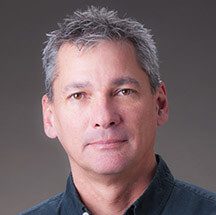
Research
Academic Information
Professional Background
My research interests are at the intersection of fish biology, molecular ecology, and conservation genetics. Although much of my research focuses on trout and char, I also work on a variety of other species, including the invasive Brook Stickleback found at Turnbull National Wildlife Refuge just south of the EWU campus.
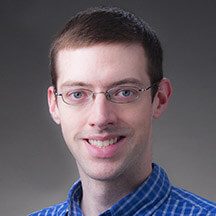
Research
Academic Information
Professional Background
I am a cell and molecular biologist with an interest in mechanisms of bone physiology and pathology. Specifically, I investigate signaling pathways and molecules that govern the differentiation and function of osteoclasts – cells responsible for the breakdown and remodeling of bone. My lab uses animal models and cell culture systems in conjunction with molecular biology tools including gene and protein expression analysis, cDNA cloning, and transgene expression.
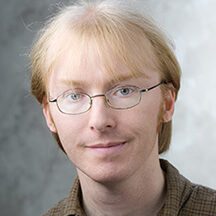
Research
Academic Information
Professional Background
I am an ecosystem ecologist interested in how food webs mediate ecosystem processes in terrestrial ecosystems. My current research focuses on the relationship between soil food webs and carbon cycling. Soils play an outsized role in the global carbon cycle, but the dynamics of soil food webs have historically been poorly understood. My research uses a combination of field and lab experiments to try to understand how nematodes, arthropods, bacteria, plants, and fungi are interacting and what it means for the biosphere.
If you are interested in working in my lab on my ongoing research or in developing your own project in the area of terrestrial ecosystem ecology, please contact me.

Research
Academic Information
Professional Background
I study the evolution and ecology of aquatic organisms.

Research
Academic Information
Professional Background
I study plant community diversity and ecosystem function in a range of ecosystems, including Riparia, Palouse Prairie, and the Channeled Scablands. Recent projects include riparian restoration after dam removal on the Elwha River, Washington, Palouse Prairie Restoration on the EWU Campus, invasive winter annual grass distribution and management in eastern Washington, and studying the interacting effects of beaver and wildfire on riparian ecosystems in eastern Washington.
Pronouns: he/his
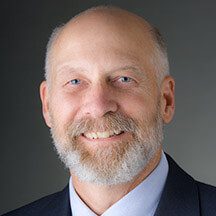
Pronouns: he/his
Research
Professional Background
I study the evolution and dispersal of mammals, birds, and dinosaurs on the southern continents.
Pronouns: she/her
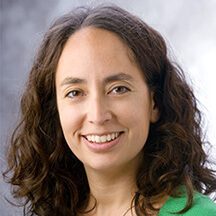
Pronouns: she/her
Research
Academic Information
Professional Background
Molecular biologist interested in Manuka Honey antimicrobial mechanisms, genes involved in the regulation of bacterial virulence, and probiotic use for therapeutic intervention.
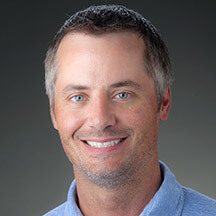
Research
Academic Information
Professional Background
The focus of my research lab is on the neurochemical messenger dopamine and its role in brain function. Specifically, my research has explored how drugs (e.g., amphetamine and methamphetamine) impact dopamine-mediated behaviors and cellular signaling molecules implicated in memory formation. More recent research elucidated amphetamine’s cellular mechanism of action on dopamine neurotransmission. As a faculty member at EWU, my lab utilizes the technique of voltammetry which provides one the ability to monitor the activity of specific molecules (e.g., dopamine) in the brain. Future directions are to continue to investigate dopamine function, how drugs impact these processes, and dopamine dysfunction related to pathological conditions such as Parkinson’s disease.
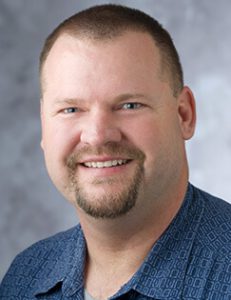
Research
Academic Information
Pronouns: he/him

Pronouns: he/him
Research
Academic Information
Professional Background
My research interests are in science education at both the undergraduate and K-12 level. I am particularly interested in undergraduate student learning in biology, undergraduate science faculty instructional approaches, and K-12 preservice teacher development in science.
There are opportunities for undergraduate and graduate students interested in biology/science education to participate in on-going research and design independent projects. If you are interested please contact me by email to learn more about current education research opportunities.
Pronouns: He/Him

Research
Academic Information
Professional Background
I am a cell and molecular biologist with an interest in mechanisms of human diseases and therapeutics (diabetes, insulin resistance, and obesity). My current research interest is in skeletal muscle physiology, especially in exploring the mechanisms of improving insulin sensitivity and muscle function, and the interactions between exercise and insulin action.
I am currently a biology lecturer who teaches undergraduate courses in general biology, introduction to biology, elementary medical microbiology, biological investigation, cell biology, and current topics in cellular and molecular biology. I am also a mentor for instructors in College in High School (CiHS) program. In my personal time, I enjoy traveling, running, swimming, hiking, skiing, outdoors, art, and photography.
Pronouns: she/her/hers
Pronouns: he/him
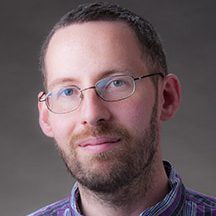
Pronouns: he/him
Research
Academic Information
Professional Background
I’m a disease ecologist, interested in the ecological relationships between hosts, pathogens, and vectors that transmit them, as well as with their abiotic and biotic environment. I’m particularly focused on vector-borne diseases, such as those transmitted by ticks and mosquitoes. Information about current and future research projects is provided on my webpage.
I am actively recruiting undergraduate and graduate students to participate in on-going research and design independent projects. Please contact me if you are interested in participating in lab, computer, or field-based research.
Pronouns: she/her

Pronouns: she/her
Research
Academic Information
Professional Background
My research interests are in comparative physiology, with the overall goal of understanding how the ecology and evolution of species are shaped by cellular-level processes. Information about current and future research projects is provided on my webpage.
I am actively recruiting undergraduate and graduate students to participate in on-going research and design independent projects. Please contact me if you are interested in participating in lab-based or field research.
Pronouns: he/him
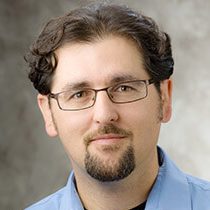
Pronouns: he/him
Research
Academic Information
Professional Background
My research interests are in the evolutionary genetics of host/pathogen interactions. I am particularly interested in understanding how pathogen genetics and virulence change following host shifts to permit a successful long term infection of the novel host.
My lab studies host/pathogens interactions. We use Drosophila and Drosophila-specific viruses in a model system to learn about the evolution of virulence (harm to host) following host shifts by studying the genetics of the pathogen and pathogenesis in the host. We want to understand why pathogens are capable of moving across host species (e.g. pigs to humans in swine flu).
Students interested in undergraduate or graduate research experiences should contact me by email to set up an appointment to meet and discuss current opportunities in the lab.

Research
Professional Background
I am an aquatic ecologist with a strong interest in links between ecosystem processes and community interactions, and how these are affected by natural landscapes. I am particularly interested in how resource fluxes affect organisms’ interactions, and conversely, how species traits and interactions affect pathways of nutrient and carbon cycling. My graduate research focused on how the ecological role of caddisfly grazers varied with watershed landscape position. I identified stream size thresholds associated with changes in grazing regimes. My findings also suggested that traits of primary consumers have consequences for whether algal energy is transferred up the food web to predators, or sequestered in predator-defended herbivores.
Currently, I am collaborating with researchers from the University of California, University of Minnesota, and Simon Frasier University on projects linking stream community and ecosystem processes to the landscape of a northern California watershed. Projects include: measuring nutrient regeneration by dominant invertebrates, determining landscape controls on stream primary productivity and terrestrial carbon inputs, and using stable isotopes and diet analysis to compare how energy moves through food webs in productive and unproductive streams.
I have also become interested in using measurements of basic ecosystem processes, such as primary productivity and nutrient cycling, as tools to evaluate stream ecosystem health. Anthropogenic impacts to streams are often assessed through labor-intensive biological monitoring based on invertebrate or algal communities. Measurements of ecosystem processes may be cheaper and less labor-intensive, and provide more insight into functional changes that may have occurred. However, their application to biological assessment has not been well-tested. I have begun some preliminary work comparing measures of nutrient uptake to conventional biological assessment using invertebrates, which I hope to expand.
Pronouns: she/her

Pronouns: she/her
I am a wildlife biologist and behavioral ecologist with research interests in thermal ecology, foraging ecology, animal-habitat associations, and predator-prey behavioral interactions. My research primarily focuses on mammals, but I have also worked with amphibians, waterfowl, and salmonids. I work in landscapes comanaged for human use, including urban environments, agricultural and rangelands, and production forests.
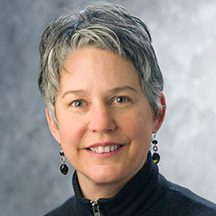
Research
Academic Information
Professional Background
I am deeply curious about the patterns and processes that shape organismal diversity. I am interested in the evolution of morphological diversity in plants (e.g., plant architecture), historical biogeography and aspects of evolutionary ecology, such as habitat preferences, pollinator-mediated hybridization, and introgression. My approaches have included developmental and comparative morphology, molecular systematics, population genetics, and field pollination biology. My primary study system has been the small tribe Montieae (Portulacaceae), but additional systems have included Loasaceae and more recently Asclepias (Apocynaceae). With my research, I aim to synthesize evidence in a phylogenetic framework from diverse fields to understand plant species diversity.
Research opportunities for students are the central focus of my research agenda. I frame many of my research questions in “bite-sized” chunks, so that they are attractive and doable to students who may have limited time, but substantial interest. This approach produces project ideas that are perfect for student research because they can be accomplished as individualized units, but effectively contribute to my broader research objectives. However, providing projects from my own research are not the sole aim of my research agenda. I am equally motivated to mentor student-initiated independent projects. Students with an interest in plant systematics, population biology, biogeography, or morphology are encouraged to contact me.
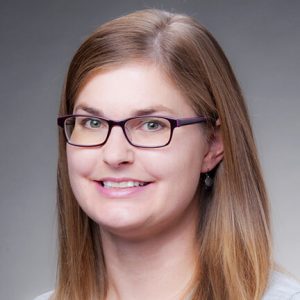
Research
Academic Information
Professional Background